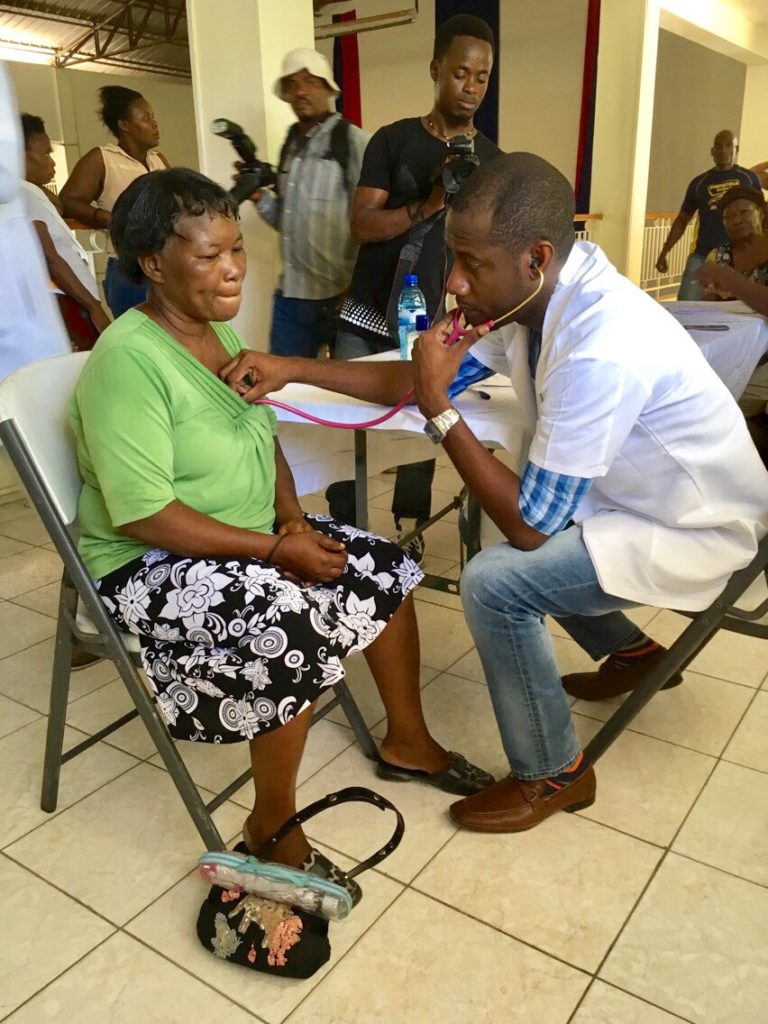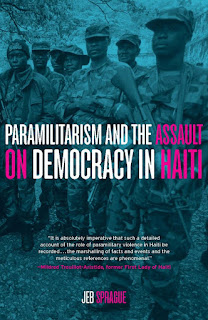By: Kim Ives - Haiti Liberte
Joseph Emmanuel “Manno” Charlemagne, Haiti’s most beloved and
controversial folk singer, died in a Miami Beach hospital on Dec. 10
at the age of 69, after a struggle of several months with lung cancer
which had spread to his brain.
His rich baritone voice, trenchant lyrics, and graceful melodies
inspired the generation of Haitians which rose up against the
three-decade Duvalier dictatorship in 1986. Sometimes called the
Haitian Bob Marley or Bob Dylan, Manno’s huge popularity won him
Port-au-Prince’s mayor’s office in 1995, but his lyrical idealism soon
dashed against the rocks of Haiti’s difficult political realities, and
he was all but chased from that office. In recent years, he had
withdrawn from Haiti’s political scene, except for some ill-fated
sorties which he regretted.
Born on Apr. 14, 1948, Manno was raised mostly by his aunt in
Port-au-Prince’s Carrefour neighborhood and came of age under the
brutal dictatorship of François “Papa Doc” Duvalier, who rose to power
in 1957. Both his aunt and mother were singers. His father, whose
identity Manno only learned from his mother in 1985, was also a
musician. When Manno traveled to New York to finally meet him, he
learned his father had died two months earlier.
Joseph Emmanuel “Manno” Charlemagne, Haiti’s most beloved and
controversial folk singer, died in a Miami Beach hospital on Dec. 10
at the age of 69, after a struggle of several months with lung cancer
which had spread to his brain.
His rich baritone voice, trenchant lyrics, and graceful melodies
inspired the generation of Haitians which rose up against the
three-decade Duvalier dictatorship in 1986. Sometimes called the
Haitian Bob Marley or Bob Dylan, Manno’s huge popularity won him
Port-au-Prince’s mayor’s office in 1995, but his lyrical idealism soon
dashed against the rocks of Haiti’s difficult political realities, and
he was all but chased from that office. In recent years, he had
withdrawn from Haiti’s political scene, except for some ill-fated
sorties which he regretted.
Born on Apr. 14, 1948, Manno was raised mostly by his aunt in
Port-au-Prince’s Carrefour neighborhood and came of age under the
brutal dictatorship of François “Papa Doc” Duvalier, who rose to power
in 1957. Both his aunt and mother were singers. His father, whose
identity Manno only learned from his mother in 1985, was also a
musician. When Manno traveled to New York to finally meet him, he
learned his father had died two months earlier.














